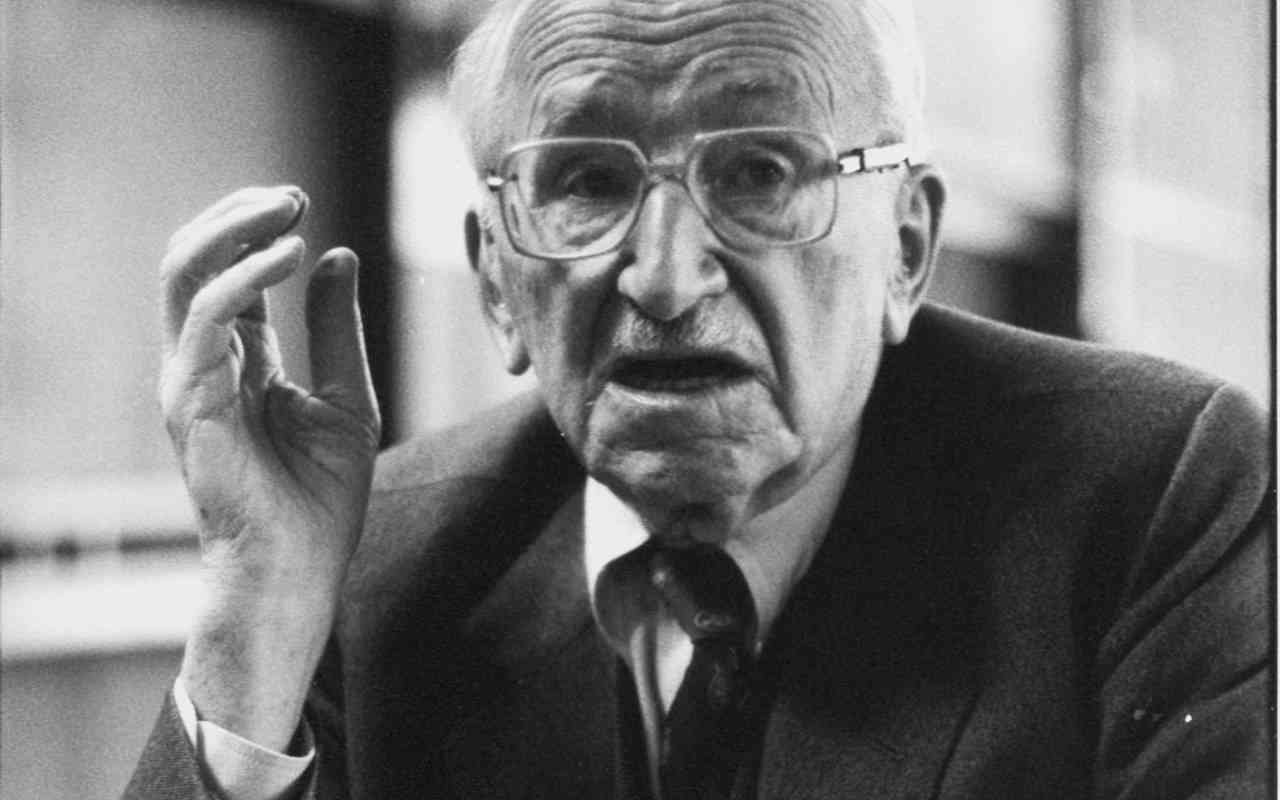Nature can be neither just nor unjust — though our inveterate habit of interpreting the physical world animistically or anthropomorphically often leads us to such a misuse of words, and makes us seek a responsible agent for all that concerns us.
– F.A. Hayek
Today is Friedrich Hayek’s birthday, and so I thought I’d celebrate the great economist and classical liberal thinker with an excerpt from his phenomenal essay, “Why I Am Not a Conservative,” which provided the inspiration for much of philosophy behind the skeptical libertarian project.
There is one respect, however, in which there is justification for saying that the liberal occupies a position midway between the socialist and the conservative: he is as far from the crude rationalism of the socialist, who wants to reconstruct all social institutions according to a pattern prescribed by his individual reason, as from the mysticism to which the conservative so frequently has to resort.
What I have described as the liberal position shares with conservatism a distrust of reason to the extent that the liberal is very much aware that we do not know all the answers and that he is not sure that the answers he has are certainly the rights ones or even that we can find all the answers. He also does not disdain to seek assistance from whatever non-rational institutions or habits have proved their worth.
The liberal differs from the conservative in his willingness to face this ignorance and to admit how little we know, without claiming the authority of supernatural forces of knowledge where his reason fails him. It has to be admitted that in some respects the liberal is fundamentally a skeptic — but it seems to require a certain degree of diffidence to let others seek their happiness in their own fashion and to adhere consistently to that tolerance which is an essential characteristic of liberalism.
There is no reason why this need mean an absence of religious belief on the part of the liberal. … What distinguishes the liberal from the conservative here is that, however profound his own spiritual beliefs, he will never regard himself as entitled to impose them on others and that for him the spiritual and the temporal are different sphere which ought not to be confused.

